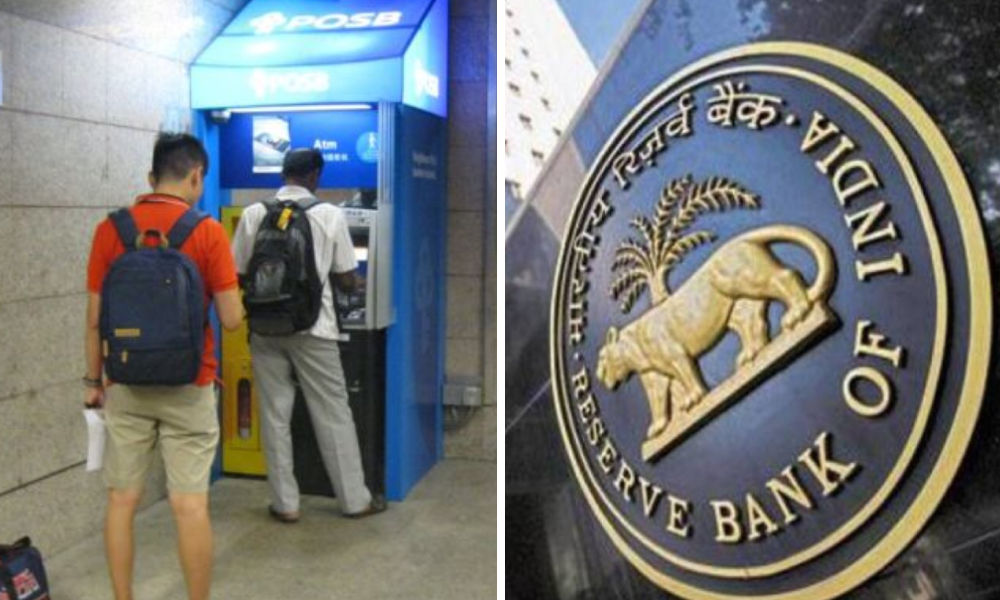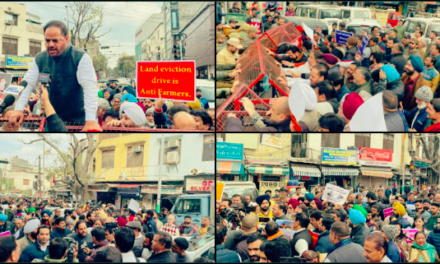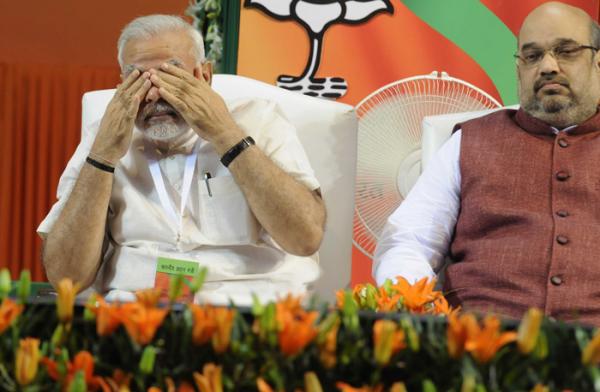In a startling revelation More than 300 verified mobile phone numbers, including of two serving ministers, over 40 journalists, three opposition leaders and one sitting supreme court judge.,
Besides scores of business persons and activists in India could have been targeted for hacking through an Israeli spyware sold only to government agencies, reported an international media consortium reported on Sunday.
The government, however, dismissed allegations of any kind of surveillance on its part on specific people, saying it “has no concrete basis or truth associated with it whatsoever”.
Asserting that “India is a robust democracy that is committed to ensuring the right to privacy to all its citizens as a fundamental right”, the government dismissed the media report as an attempt to playing “the role of an investigator, prosecutor as well as jury”.
The report was not only published by The Wire news portal from India but also 16 other international publications including Washington Post, The Guardian and Le Monde
Those 16 International publications are media partners to an investigation conducted by Paris-based media non-profit organisation Forbidden Stories and rights group Amnesty International into a leaked list of more than 50,000 phone numbers from across the world that are believed to have been the target of surveillance through Pegasus software of Israeli surveillance company NSO Group.
It was reported that forensic tests conducted as part of the media investigation project on a small cross-section of phones associated with these numbers revealed clear signs of targeting by Pegasus spyware in 37 phones, of which 10 are Indian.
The report came just a day before the start of the Monsoon Session of Parliament and could see the matter being raised in two houses, Lok Sabha and Rajya Sabha, beginning tomorrow.
Curiosity arourse in social media with resepct to the sitting cabinet minsiters and Sittung Supreme Court judge
Some opposition leaders are also expected to give notices for adjournment or debate on this issue.
Taken aback at the deveopment happend at international level and responding to the Interantaional reports, the Modi led BJP union government referred to its reply given to the media consortium
The government, in its response, said India is committed to ensuring the right to privacy to all its citizens as a fundamental right and for that, it has also introduced the Personal Data Protection Bill, 2019 and the Information Technology (Intermediary Guidelines and Digital Media Ethics Code) Rules, 2021, to protect the personal data of individuals and to empower users of social media platforms.
The commitment to free speech as a fundamental right is the cornerstone of India’s democratic system, it said.
“We have always strived to attain an informed citizenry with an emphasis on a culture of open dialogue.
BJP governemtn also said similar claims were made in the past as well regarding the use of Pegasus on WhatsApp by India and those reports also had no factual basis and were categorically denied by all parties, including WhatsApp in the Indian Supreme Court.
“This news report, thus, also appears to be a similar fishing expedition, based on conjectures and exaggerations to malign the Indian democracy and its institutions,” the government said.
It further said that there is a well-established procedure through which “lawful interception of electronic communication is carried out in order for the purpose of national security, particularly on the occurrence of any public emergency or in the interest of public safety, by agencies at the Centre and States” and the procedure ensures that any interception, monitoring or decryption of any information through any computer resource is done as per a due process of law.
NSO Group, the Israeli company which sells Pegasus worldwide, says its clients, are confined to “vetted governments”, believed to number 36, according to 16 International news agencies
Forbidden Stories, which accessed the data, stated that it comprises records of phone numbers selected as targets by NSO clients, a claim the company formally denied while conceding that its clients might have used these numbers for “other purposes”.
A majority of the numbers identified in the list were geographically concentrated in 10 country clusters inclusive of India, Azerbaijan, Bahrain, Hungary, Kazakhstan, Mexico, Morocco, Rwanda, Saudi Arabia and the United Arab Emirates.
The leaked data includes the numbers of top journalists at big media houses like the Hindustan Times, India Today, Network18, The Hindu and Indian Express, the report added
The mobile phone of a former Delhi University professor was also allegedly targeted, while the database also included at least nine numbers belonging to eight activists, lawyers and academics arrested between June 2018 and October 2020 for their supposed role in the Elgar Parishad case.
Critics in facour of governemnt argued that the mere presence of a phone number in the leaked data does alone not reveal whether a device was infected.
“Indeed, it is not possible to know whether their phones were targeted by Pegasus spyware… without digital forensic analysis,” it said.
However, the questionnaire sent to the Government of India indicates that the story being crafted is one that is not only bereft of facts but also founded in pre-conceived conclusions,” it said, referring to the queries it had received from the media consortium.
“It seems you are trying to play the role of an investigator, prosecutor as well as jury.
Considering the fact that answers to the queries posed have already been in the public domain for a long time, it also indicates poorly conducted research and lack of due diligence by the esteemed media organizations involved,” the government said in its response to the global media collective that worked on ‘Project Pegasus’.
From the 40 journalists mentioned by the Wire, only seven agreed to have their phones examined by Amnesty.
These include the phones of former Indian Express journalist Sushant Singh, former TV18 anchor Smita Sharma, former EPW editor Paranjoy Guha Thakurta, former Outlook journalist SNM Abdi, the Hindu’s Vijaita Singh and the Wire’s two founding editors Siddharth Varadarajan and MK Venu were analysed.
Of these seven journalists, the Wire reports that Amnesty detected successful infections in phones of five journalists: Sushant Singh, Thakurta, Abdi, Varadarajan and Venu.
The list of 40 journalists, however, includes names from major Delhi-based news mainstream news organisations like Indian Express, Hindustan Times, India Today, TV18, the Hindu, the Pioneer, and independent journalists.
These phones were targeted between 2018 and 2019, but it’s important to note that not all journalists on the list are perceived to be anti-establishment or are known for their stories against the current government.
In fact, Shishir Gupta, executive editor of Hindustan Times, last made news for sending an email to Bharatiya Janata Party national president Amit Shah and officer on special duty in the PMO, Hiren Joshi, with the subject “KEJRIWAL AGAINST CENTRE”
Some other journalists like Ritika Chopra of the Indian Express, Vijaita Singh of the Hindu, Sandeep Unnithan of India Today, Manoj Gupta of TV18, J Gopikrishnan of the Pioneer, among others, are beat reporters who cover central ministries.
The Hindu made the curious decision not to carry the news on its front page, considering its journalist Vijaita Singh, who covers the home ministry, is named as one of the journalists allegedly targeted.









